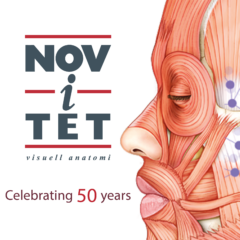New Phase IIIB data shows Novartis Fabhalta® improved hemoglobin levels in adult patients with paroxysmal nocturnal hemoglobinuria who switched from anti-C5 therapy
- In the Phase IIIB APPULSE-PNH study, oral Fabhalta® (iptacopan) improved the average hemoglobin (Hb) level versus baseline in adult patients with paroxysmal nocturnal hemoglobinuria (PNH) who were switched from anti-C5 therapies (Hb ≥10g/dL following treatment with eculizumab or ravulizumab)1,2
- PNH is a rare, chronic and serious complement-mediated blood disorder, characterized by hemolysis, anemia, thrombosis and other symptoms, and patients are often treated with anti-C5 therapies3-5
- Findings from APPULSE-PNH build on the Phase III program showing the efficacy and safety of Fabhalta in adults with PNH1, which is approved in the US, EU, Japan and China6-9
Novartis announced positive topline results from APPULSE-PNH, a Phase IIIB study evaluating the efficacy and safety of twice-daily oral monotherapy Fabhalta® (iptacopan) in adult patients with paroxysmal nocturnal hemoglobinuria (PNH) who were switched from anti-C5 therapies (Hb ≥10g/dL following treatment with eculizumab or ravulizumab)1. After 24 weeks of treatment with Fabhalta, the average Hb level improved versus baseline1.
“These new results add to the body of evidence reinforcing that Fabhalta can benefit both patients previously treated with anti-C5 therapies studied in the APPULSE-PNH and APPLY-PNH trials and complement-inhibitor naïve patients studied in the APPOINT-PNH trial,” said Antonio Risitano, M.D., Ph.D., Chair of the International PNH Interest Group and Head of the Hematology and Hematopoietic Transplant Unit, Reference Center for Aplastic Anemia and Paroxysmal Nocturnal Hemoglobinuria at the AORN San Giuseppe Moscati, Avellino, Italy, and APPULSE-PNH trial lead investigator. “Treatment goals for patients with PNH have greatly evolved, and we can now aim to resolve signs and symptoms of disease in most patients. It is promising to see this evolution, and we will continue to make progress to best support these patients.”
In the study, the safety profile of Fabhalta monotherapy was consistent with previously reported data1,10.
“Across multiple clinical trials, Fabhalta has consistently shown clinically meaningful benefits for patients with PNH, and the APPULSE-PNH trial is a compelling addition to this body of evidence,” said David Soergel, M.D., Global Head, Cardiovascular, Renal and Metabolism Development Unit, Novartis. “These data reinforce our confidence in Fabhalta, the first and only oral monotherapy currently available for the treatment of adults with PNH, to provide meaningful hemoglobin improvement, regardless of previous treatment experience.”
Data will be presented at an upcoming medical meeting in 2025. Fabhalta was recently granted accelerated approval by the US Food and Drug Administration (FDA) for the reduction of proteinuria in adults with primary immunoglobulin A nephropathy (IgAN) at risk of rapid disease progression, and development is ongoing in multiple complement-mediated diseases6,11.
About APPULSE-PNH
APPULSE-PNH (NCT05630001) is a Phase IIIB multicenter, single-arm, open-label study to evaluate the efficacy and safety of twice-daily oral Fabhalta® (iptacopan) monotherapy (200mg) in adults with PNH who were switched from anti-C5 therapies (eculizumab or ravulizumab)2. The trial enrolled 52 participants who received Fabhalta for 24 weeks2.
Participants enrolled were required to be on a stable regimen with anti-C5 therapies (eculizumab or ravulizumab) for at least 6 months prior to screening with average hemoglobin (Hb) ≥10g/dL and no red blood cell transfusions in this period2,12. The primary endpoint is change from baseline Hb levels after 24 weeks of treatment with Fabhalta2,12.
About paroxysmal nocturnal hemoglobinuria (PNH)
PNH is a rare, chronic and serious complement-mediated blood disorder13. People with PNH have an acquired mutation in some of their hematopoietic stem cells (which are located in the bone marrow and can grow and develop into red blood cells [RBCs], white blood cells and platelets) that causes them to produce RBCs that are susceptible to premature destruction by the complement system4,13. This leads to intravascular hemolysis (destruction of RBCs within blood vessels) and extravascular hemolysis (destruction of RBCs mostly in the spleen and liver), which cause anemia (low levels of circulating RBCs), thrombosis (formation of blood clots), fatigue and other debilitating symptoms4,13.
It is estimated that approximately 10-20 people per million worldwide live with PNH13. Although PNH can develop at any age, it is often diagnosed in people between 30-40 years old14,15.
PNH has a significant unmet need not addressed by anti-C5 therapies (eculizumab or ravulizumab). Anti-C5 therapies (eculizumab or ravulizumab) are commonly administered every 2-8 weeks as intravenous infusions, and treatment visits (including journey, waiting, infusion and recovery time) can take approximately 4 to 5 hours5. Despite treatment with anti-C5 therapies, a large proportion of people with PNH remain anemic, and some dependent on blood transfusions3,4,16-20.





